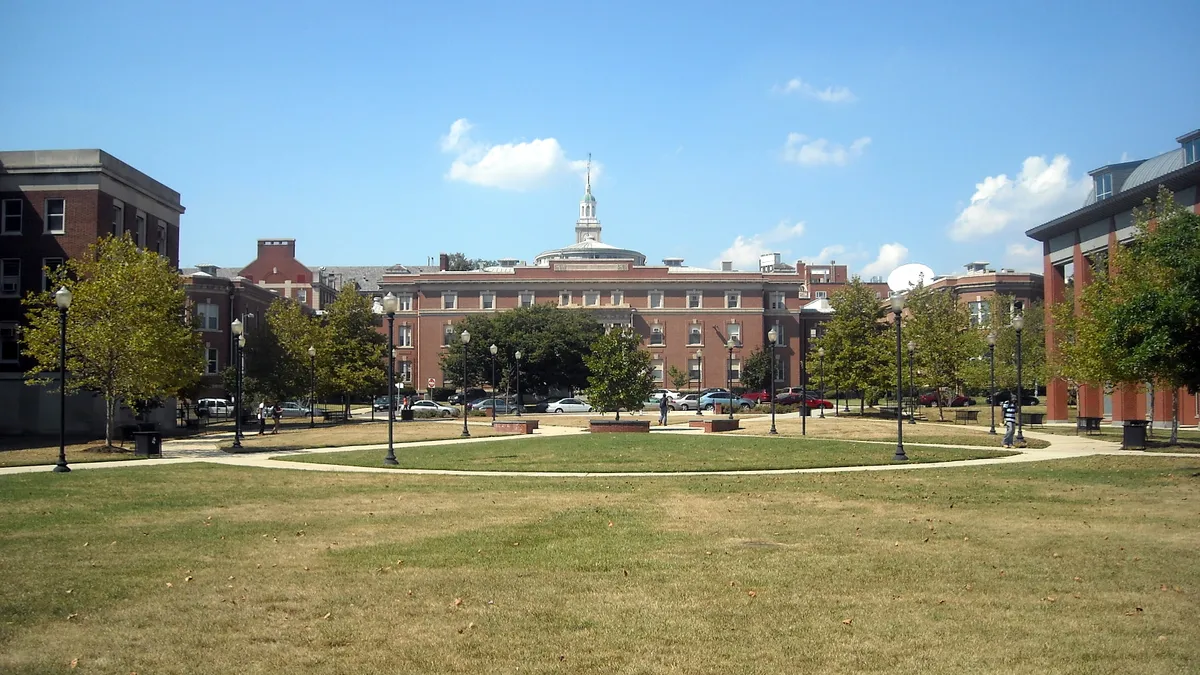Dive Brief:
- Historically black colleges enrolled and graduated about one-fourth of all black undergraduates across 21 states and territories in 2016, although they accounted for less than 10% of all four-year institutions, explains a new report from UNCF.
- Those states and territories represent areas in which HBCUs are clustered and so looking at them exclusively offers a clearer view of the institutions' impact than do national surveys, the report's authors explain.
- The report, "HBCUs Punching Above Their Weight," comes as HBCUs grapple with declining enrollment and public support, which in some cases have caused them to consolidate or close.
Dive Insight:
In one-third of the 21 states and territories tracked, HBCUs enroll between 32% and 48% of black undergraduates — above the group average of around 24%. That's also well above HBCUs' share of all institutions in those states, which averages 9.3%.
By looking at the state level, the report also shows where HBCUs have the biggest impact. In Mississippi, North Carolina, Alabama, Louisiana, Maryland, South Carolina and the District of Columbia, HBCUs enroll more than 30% of undergraduates. In South Carolina, Alabama and Mississippi, HBCUs account for more than 20% of institutions. Delaware also ranked high on the list, enrolling around 40% of its undergraduates at HBCUs.
HBCUs are also strong producers of black STEM graduates, the report notes, providing around one-third of those degrees across the sample.
The latest study follows earlier research from UNCF showing HBCUs have more success graduating low-income and "academically underprepared" black students than do non-HBCUs.
However, many HBCUs are struggling under the weight of declining enrollment and public support. Research has also found that HBCUs pay more to issue debt and receive tougher sanctions from their primary accreditor than do non-HBCUs. Non-alumni donors have also historically overlooked HBCUs for big, endowment-boosting gifts.
To fortify themselves against dwindling numbers, for instance, three HBCUs in Georgia could merge into a single system. Lawmakers have put forward a plan that would take the institutions out of the University System of Georgia, threatening their status as HBCUs. That has prompted calls from the community to preserve them instead.
The financial strain also is placing a physical toll on the institutions. In a survey of 79 HBCUs, 70 said about half (46%) of their space needed maintenance or to be replaced, according to a June report by the Government Accountability Office (GAO). Through its survey, site visits and a review of HBCU master plans, the agency found a backlog of deferred maintenance, the need to update historical buildings and a desire to update buildings to stay competitive.
A separate GAO report found nearly 30% of payments in an HBCU-specific federal loan program were late in 2017.
Relief is coming to some HBCUs through the federal farm bill passed late last year. It allows them to roll over more federal funds and adds dollars to create more scholarships and at least three centers of excellence on topics such as workforce development and student success. HBCUs have been advised to focus on niche areas of expertise to differentiate themselves.










